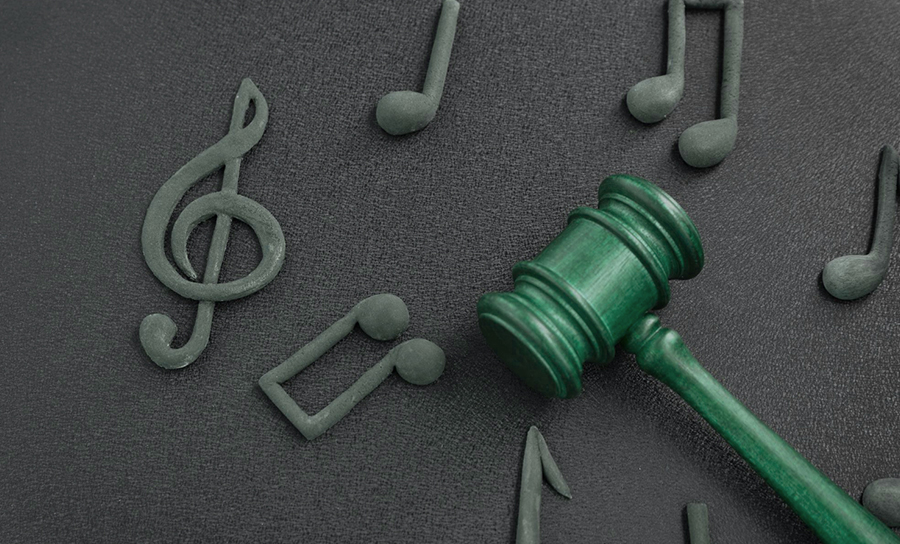Is classical music copyrighted? Find free public domain recordings in this archive

Classical music has the power to transport listeners to different eras and evoke a wide range of emotions. But the question of copyright often hovers over these musical masterpieces. Are classical music works copyrighted? Can you find free public domain recordings? In this article, we'll delve into the fascinating world of classical music copyrights and guide you to a treasure trove of free public domain recordings on the International Music Score Library Project (IMSLP).
Understanding Classical Music Copyright
One might assume that classical music, being centuries old, is automatically in the public domain. However, the copyright status of a composition depends on various factors such as the date of the composer's death, the laws of the country, and whether the work has been arranged or adapted. Generally, compositions created before the 20th century are more likely to be in the public domain.
For example, works by renowned composers like Bach, Mozart, and Beethoven are generally in the public domain, as they lived in times when copyright laws were either non-existent or had limited durations. However, when dealing with more recent compositions or specific arrangements, copyright considerations become more complex.
Classical music recordings, much like the compositions themselves, are subject to copyright protection unless explicitly released under a public domain license. The copyright status of a recording is distinct from that of the underlying composition, and it involves the rights associated with the specific performance or interpretation captured in the recording. While compositions by iconic figures like Bach, Mozart, and Beethoven may be in the public domain, recordings of those works, especially modern renditions, may still be protected by copyright. It's essential to be mindful of the intricacies surrounding copyright laws when seeking free classical music recordings. Public domain recordings can be a valuable resource for enthusiasts, and platforms like the IMSLP often provide a curated collection of such recordings for exploration.
IMSLP: A Haven for Classical Music Enthusiasts
The International Music Score Library Project (IMSLP), available at imslp.org, stands as a beacon for those seeking access to an extensive collection of classical music scores and recordings. Boasting over 80,700 recordings by 1,900 performers, IMSLP provides an invaluable resource for enthusiasts, musicians, and educators alike. The archive includes more than 226,000 works by 27,400 composers, making it a vast repository of classical musical brilliance.
Navigating IMSLP for Free Public Domain Recordings
IMSLP's commitment to making classical music accessible is evident in its user-friendly interface and comprehensive database. To find free public domain recordings on IMSLP, follow these simple steps:
Visit the IMSLP website: Navigate to imslp.org and explore the wealth of musical offerings.
2. Search for the desired composer or work: Use the search bar to find the composer or specific classical piece you're interested in.
3. Check copyright information: IMSLP provides copyright information for each composition. Look for works that are explicitly labelled as public domain or those with expired copyrights.
4. Explore recordings: Once you've identified a public domain composition, explore the available recordings. IMSLP offers a variety of performances by different artists, allowing you to choose the rendition that resonates with you.
Utilising IMSLP Recordings as a Content Creator
For content creators, IMSLP is not just a treasure trove of classical music for personal enjoyment but also a valuable resource for enhancing creative projects. Whether you're a filmmaker, podcaster, YouTuber, or any other content creator, here's how you can leverage IMSLP's recordings responsibly:
1. Soundtracks for Videos: IMSLP's vast collection of recordings offers an array of classical pieces that can serve as beautiful soundtracks for your videos. Be it a documentary, short film, or educational content, the recordings available on IMSLP can add a touch of sophistication and emotion to your visuals.
2. Podcast Background Music: If you run a podcast and are looking for elegant background music, IMSLP can be a goldmine. From calming sonatas to lively symphonies, you can find pieces that complement the tone and theme of your podcast, enhancing the overall listening experience for your audience.
3. Educational Content: IMSLP is an excellent resource for educators or creators producing educational content. Incorporating classical music in your lessons or tutorials can make the content more engaging and memorable. Ensure that the selected compositions align with the educational objectives and resonate with your audience.
4. Creative Projects: Whether you're working on a visual art project, a digital installation, or any other creative endeavour, classical music can inspire and elevate your work. IMSLP's recordings allow you to experiment with different styles and eras, adding a unique dimension to your projects.
5. Attribution and Compliance: While IMSLP offers recordings of compositions in the public domain, it's crucial to check the specific copyright information for each piece. Some recordings may have copyright restrictions, especially if they are modern interpretations or performances. Always attribute the composers and performers as per IMSLP guidelines and respect any additional licensing terms.
6. Consult Legal Professionals: For creators dealing with commercial projects or intricate copyright considerations, consulting with legal professionals is advisable. They can provide tailored advice based on your specific use case, ensuring compliance with copyright laws and protecting your creative endeavours.
Whether you're an avid listener, a content creator, a budding musician, or an educator, IMSLP provides a gateway to the world of classical music that is both enriching and accessible. So, immerse yourself in the beauty of classical compositions and let the melodies of the past and present inspire and uplift your spirit.
Legal note
It's important to note that this guide should not substitute advice from a legal professional. Copyright laws can be intricate, and their application may vary based on different factors and your location. If you have concerns about the copyright status of specific compositions or recordings, it is advisable to consult with a legal expert who specialises in intellectual property. This will ensure that you navigate the musical with clarity and respect for the rights of composers and performers.
